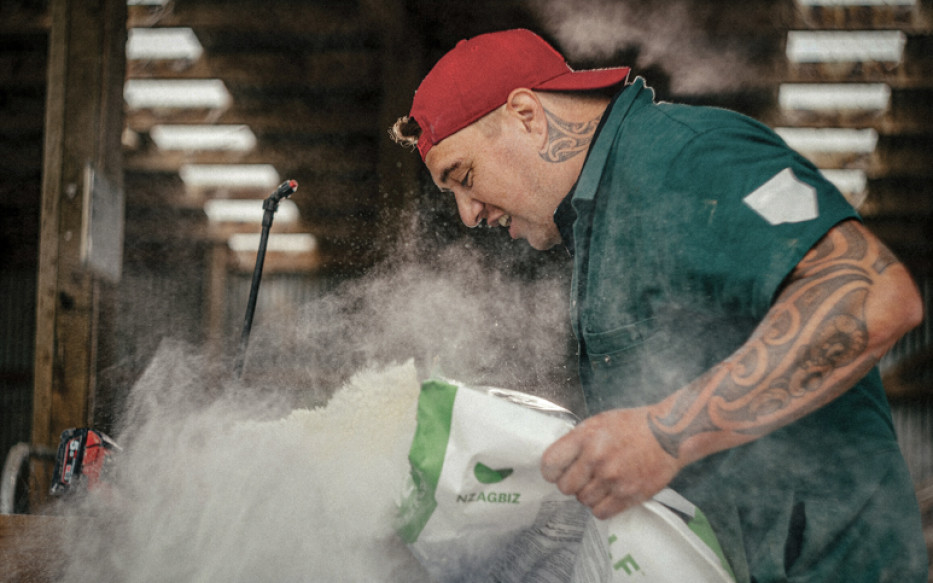KiwiSaver



Planning & budgeting
Saving & investing
KiwiSaver
Tackling debt
Protecting wealth
Retirement
Home buying
Life events
Setting goals
Money tracking
Plan your spending with a budget
Getting advice
Studying
Get better with money
What pūtea beliefs do you have?
How to save your money
How to start investing
Find a financial adviser to help you invest
Your investment profile
Compound interest
Net worth
Types of investments
Term deposits
Bonds
Investment funds
Shares
Property investment
How KiwiSaver works and why it's worth joining
How to pick the right KiwiSaver fund
Make the most of KiwiSaver and grow your balance
How KiwiSaver can help you get into your first home
Applying for a KiwiSaver hardship withdrawal
How to use buy now pay later
Before borrowing
How to get out of debt quickly
Credit reports
Know your rights
Pros and cons of debt consolidation
Credit cards
Car loans
Personal loans
Hire purchase
Student loans
Getting a fine
What happens if I start to struggle with moni?
How to protect yourself from fraud and being scammed
About insurance
Insurance types
Insuring ourselves
Wills
Enduring powers of attorney
Family trusts
Insuring our homes
Losing a partner
Redundancy
Serious diagnosis
How to cope with the aftermath of fraud
Separation
About NZ Super
This year's NZ Super rates
When you’re thinking of living in a retirement village
How to plan, save and invest for retirement
Manage your money in retirement
Find housing options in retirement
Planning & budgeting
Saving & investing
KiwiSaver
Tackling debt
Protecting wealth
Retirement
Home buying

KiwiSaver

Budgeting

KiwiSaver

Budgeting

Women

Women

Women

Budgeting


Resources
Help with the cost of living
Just wondering
In need of financial help
Booklets
Glossary
Videos
Blogs
View all
Reading time: 3 minutes

When is a bank account the right place for your money?
Savings accounts and term deposits with a bank, credit union or building society are convenient for saving.
They’re relatively safe places to park our money and earn interest, and they are easy to manage and access. Bank accounts and term deposits are a great place for short-term savings, emergency funds, and managing your budget.
Returns on bank deposits aren’t as high as other types of investments, so while they're great for managing the day to day, they're not as powerful for long-term goals.
Whether we choose a savings account or term deposit will depend on how quickly we need the money. Good questions to ask are: ‘Would I need it if I lost my job?' Or 'Are the savings for short-term spending such as holidays?’
Most basic savings accounts allow us to withdraw our money whenever we want. But if we don’t need the money straight away, we could get a higher interest rate from a term deposit.
Bank deposits usually earn interest. That means for every dollar we save, we earn a few cents each year in interest. Interest may be paid daily, monthly or yearly, but is usually quoted as an annual figure such as 2% or 4%.
Most savings accounts offer a straightforward interest rate. Bonus saver accounts are different because they offer a low basic rate and a ‘bonus’ interest rate if we meet certain criteria, such as not withdrawing our money.
Banks offer different interest rates on deposit accounts, and it’s worth shopping around to find the best rate.
You can find current rates on MoneyHub or interest.co.nz.
Bank deposits are good for regular interest payments, or access to money at short notice. However, tax and inflation can eat into the value of the interest earned.
If you want the money you invest to grow further, and can cope with a higher level of risk, consider other investments such as shares, managed funds and property. Here's a guide to different kinds of investments.
If a savings account or term deposit is a PIE (Portfolio Investment Entity), you will pay a lower rate of tax on the interest you earn. There is usually a minimum deposit and other criteria for investing in these types of accounts.
Bank deposits are some of the safest investments available to New Zealanders. But no one can guarantee that a bank or financial institution won’t fail.
Someone with large sums to invest may want to spread the money across several banks or other institutions such as credit unions. ‘Non-bank deposit takers’ such as finance companies tend to be riskier than banks.
The government does not guarantee bank deposits, but the Reserve Bank keeps an eye on how each bank is doing and requires them to publish their credit rating. This acts as a rough guide as to the likely risk of the bank failing.
Sorted’s investor profiler can help you work out a mix of investments based on what type of investor you are (your ‘investor profile’).
Guide
There are many kinds of investments out there, each with its own level of risk and return. The higher the potential return,…

Guide
Net worth is the difference between the value of what we own and the total amount that we owe.
It’s one…

Guide
Over long periods of time, compound interest supercharges your savings. The money you’re putting away is making money for you,…

Guide
Shares are among the riskiest of investments, yet they are also one of the best ways to grow money, especially…

Guide
For professional investment advice, you need a financial adviser. Advice on investments is widely available. Sharebrokers, commentators and other investors…

Guide
When we buy a bond, we’re lending money to a government, council or company. In return they promise to pay…

Guide
Here’s the key to getting ahead with money: being able to save regularly from every pay. Setting aside money for…

Guide
This will help you to understand which kinds of investments will suit each of your goals. To be successful with…

Guide
At Sorted, we’re keen to see you getting ahead financially and growing your money for the long term. Now generally,…

Guide
Putting your money into a fund – so it’s pooled with other people’s money and invested for you – is…

Don’t know where to start? Our 6 steps will help you to take control of your money.
Head to the 6 steps

Use verification code from your authenticator app. How to use authenticator apps.
Code is invalid. Please try again
Don't have an account? Sign up
Or log in with our social media platforms


A Sorted account gives you a personal dashboard where you can save your tools, track your progress and you'll also receive helpful money tips and guidance straight to your inbox.


